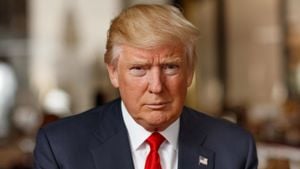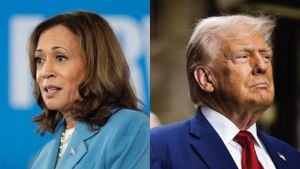The world of academia and cultural studies converges again with the recent opening of the 2nd World Conference of Sinologists held in Nanping, Fujian province, China. This significant gathering has become the focal point to discuss and deepen the global appreciation and comprehension of Chinese civilization. With over 200 representatives from 60 different countries attending, insights on modernizing this ancient culture were extensively shared, uniting scholars, researchers, and international diplomats alike.
The conference aims to explore not just the historical facets of Chinese civilization but also how these can be meaningfully implemented within the contemporary global framework. Co-organized by the Chinese Association for International Understanding and the provincial government of Fujian, the event saw key commitments from officials to promote cultural exchanges and collaborative research within the field of sinology. “We will contribute wisdom and strength to the modernization of all countries,” pledged one senior official from the International Department of the Communist Party of China Central Committee.
At the conference, sinologists were urged to focus on advancing the implementation of key global initiatives. This call to action reflects the growing need for interconnectedness among nations as they face shared global challenges. Numerous panels were dedicated to discussing how ancient philosophies, such as Confucianism, can provide insights for current and future societal structures and practices.
China, recognized as one of the world's oldest civilizations, is trying to navigate the delicate balance between traditional values and necessary modernization. Cultural norms rooted deep within the historical contexts of Confucianism persist as guiding principles for Chinese governance. These principles stress hierarchy, respect for authority, and place greater emphasis on collective well-being rather than individual interest. It's this very foundation on which modern Chinese political identity is built, demonstrating how the past is intertwined with contemporary governance.
Confucianism, often described as the bedrock of Chinese societal organization, advocates for what is termed “benevolent governance.” Here, leaders are expected to exhibit moral uprightness and provide for the welfare of the populace. The expectation is mutual: citizens owe allegiance and respect to their leaders. This ancient philosophy resonates strongly within the rhetoric of the Communist Party of China (CPC) today, which sees itself as the custodian of both Chinese culture and history.
Under the current leadership of Xi Jinping, there's been not only a revival of Confucian philosophies but also their integration with socialist governance models. Xi's political strategy prominently features the promotion of “Socialism with Chinese Characteristics for a New Era,” which aligns historical Chinese teachings with the demands of modern statecraft. Core socialist values highlighted by Xi – such as prosperity and harmony – reflect longstanding Confucian ideals and aim to cultivate social stability amid rapid change.
This hybrid between tradition and modernity is indicative of China’s changing political identity, where both Confucian ideals and modern Marxist-Leninist doctrines coexist yet sometimes compete. While the CPC initially distanced itself from Confucianism under Mao Zedong’s fervent radicalism, it has re-embraced these philosophies during the reform movements initiated by Deng Xiaoping. These changes led to China's transition from strict communism to what many recognize as a mixed economic system allowing for capitalist practices alongside state control.
One of the standout projects exemplifying this blend of ideology and pragmatism is China's Belt and Road Initiative (BRI). Proposed as a means to increase global economic connectivity, it embodies principles of harmony and mutual benefit deeply woven within Confucian thought. Yet, critics argue it may also facilitate China's geopolitical ambitions at the cost of economic sovereignty for partner nations, raising questions about the ethical underpinnings of such initiatives.
During the conference, attendees emphasized the importance of cultural diplomacy and exchange as strategies to reinforce China's international presence. The philosophy of Tianxia, which promotes the idea of global harmony and benevolent leadership, was raised as part of this discourse. China’s strategy actively positions it as the defender of multilateral cooperation, aiming to present itself as not just another power but as a stabilizing force on the global stage.
Echoing through the hallways of the conference were reflections on the duality within China’s foreign policy – where soft power strategies like cultural outreach share the limelight with assertive military and economic tactics. This dual approach came particularly under scrutiny during discussions about the South China Sea and China’s growing assertiveness there, seen by some as contrary to global norms of justice.
The conference also examined the historical and philosophical legacies shaping China’s interactions with global superpowers like the United States. Historical ties were revisited, alongside contemporary tensions arising from trade wars and strategic rivalry. Participants acknowledged Xi's leadership style has marked a shift toward more aggressive stances against perceived threats to China's sovereignty and interests. The era of friendly relations has dwindle, replaced by competition and confrontation.
Strategists during the conference concluded with reflections on the pivotal role cultural identity plays not merely for China but for all nations as they navigate increasingly complex global challenges. Unpacking traditional philosophies for contemporary use may hold the key to forging more effective governance structures, promote stability, and build international cooperation.
It became clear as discussions unfolded: China's unique blend of ancient philosophy and modern political necessity is not just its identity but increasingly influences the global dialogue and interplay among nations. With many experts agreeing on the importance of such conferences, the collaboration seems poised to yield rich discussions and developments for years to come.
Overall, the emergence of events like the World Conference of Sinologists shines light on the relevance of old ideas. They frame discussions on contemporary problems, affirming the bridge between tradition and the contemporary and potentially reshaping the future of global governance.



